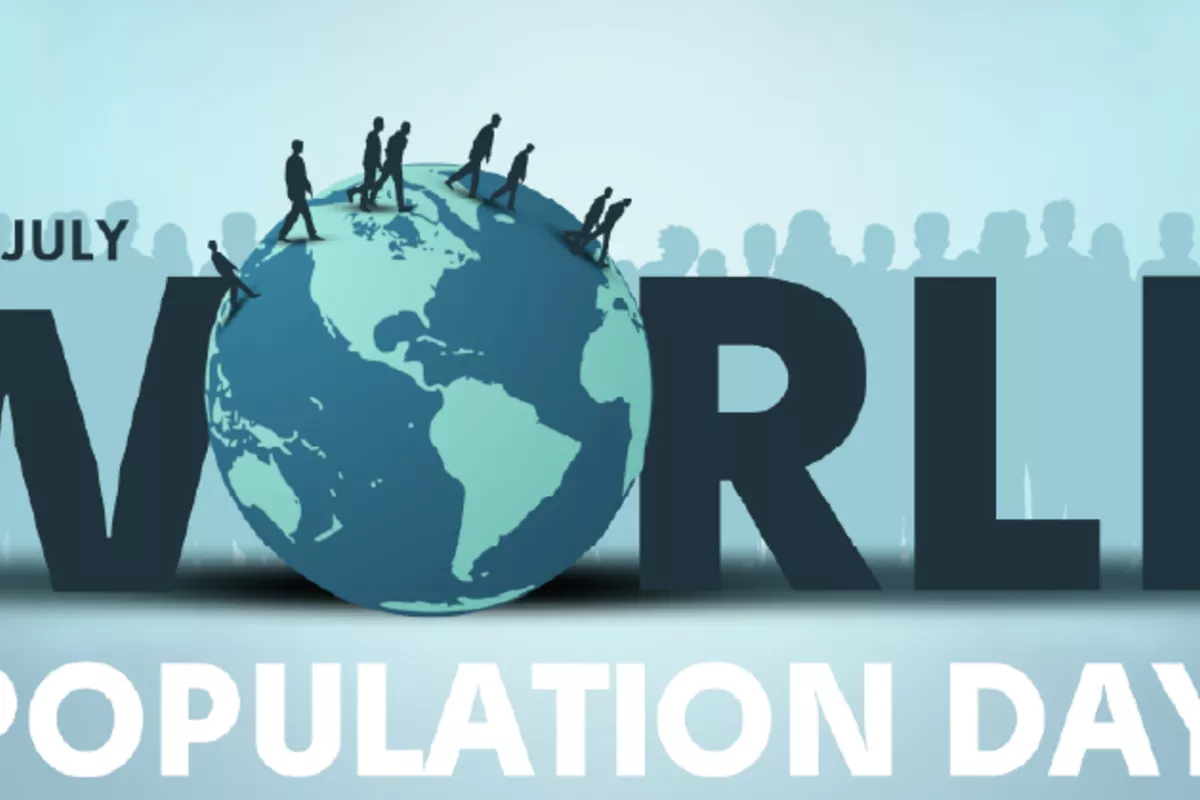
photo: University Living
July 11 marks World Population Day, an annual observance dedicated to raising awareness about global population issues and the challenges and opportunities they present for sustainable development and human well-being.
As global fertility rates continue to decline, sparking widespread concern over a potential "population collapse," the United Nations Population Fund (UNFPA) is calling for a shift in focus-from falling birth rates to the growing crisis of reproductive inequality, The Caspian Post reports, citing local media.
In its flagship State of World Population report released ahead of World Population Day 2025, UNFPA emphasizes that the most pressing demographic issue is not how few children are being born, but the fact that millions of people-particularly young people-are unable to have the families they want due to deep-rooted social, economic, and institutional barriers.
This year’s World Population Day, observed annually on July 11, carries the theme: “Empowering young people to create the families they want in a fair and hopeful world.” It highlights the urgent need to equip the world’s largest-ever generation of youth with the rights, tools, and opportunities to plan their futures freely and confidently.
Despite their potential to drive positive change, young people around the world face a host of challenges that hinder their ability to make informed reproductive choices. These include rising living costs, limited access to quality healthcare and education, entrenched gender inequality, climate-related instability, and ongoing conflict.
A joint UNFPA-YouGov survey spanning 14 countries revealed that while many young people aspire to have children, their plans are frequently derailed by financial pressures, lack of support systems, and concerns about global instability and sustainability.
“Population discussions often ignore the root causes behind fertility decline,” said UNFPA Executive Director Dr. Natalia Kanem. “When young people are denied agency, the result is not only fewer births-but greater frustration, instability, and lost potential.”
One youth activist interviewed for the report summed it up powerfully: “Young people are not just thinking about their future children-they are thinking about the world those children will inherit.”
Global Trends Redefining the Population Landscape
The world’s population dynamics have undergone dramatic transformation in just two centuries. From reaching 1 billion people after hundreds of thousands of years, the global population surged to 7 billion by 2011 and is expected to reach 8.5 billion by 2030, 9.7 billion by 2050, and 10.9 billion by the end of the century.
These shifts are driven not just by births, but by longer life expectancy, greater child survival, mass urbanization, and rising migration. In the 1970s, women worldwide had an average of 4.5 children. By 2015, that number had dropped to 2.5. Meanwhile, global life expectancy rose from 64.6 years in the early 1990s to 72.6 years by 2019.
The pace of urbanization is also changing the way people live. Since 2007, more people have lived in cities than rural areas for the first time in history. By 2050, 66% of the global population is expected to live in urban centers.
These megatrends have wide-reaching implications for employment, education, healthcare, housing, and social services. To respond effectively, policymakers must not only understand how many people live on the planet-but where they live, how old they are, and what futures they envision.
A Call for Action
As fertility rates decline, UNFPA stresses that empowering youth is essential-not only to ensure reproductive rights, but to foster sustainable development, peace, and human dignity.
“Young people need more than access to services,” the report concludes. “They need hope, stability, and a future worth planning for.”
With global attention focused on demographic shifts, World Population Day 2025 serves as a crucial reminder: the future depends not just on numbers, but on the freedom of every person-especially the next generation-to make informed choices about their lives and families.
Share on social media